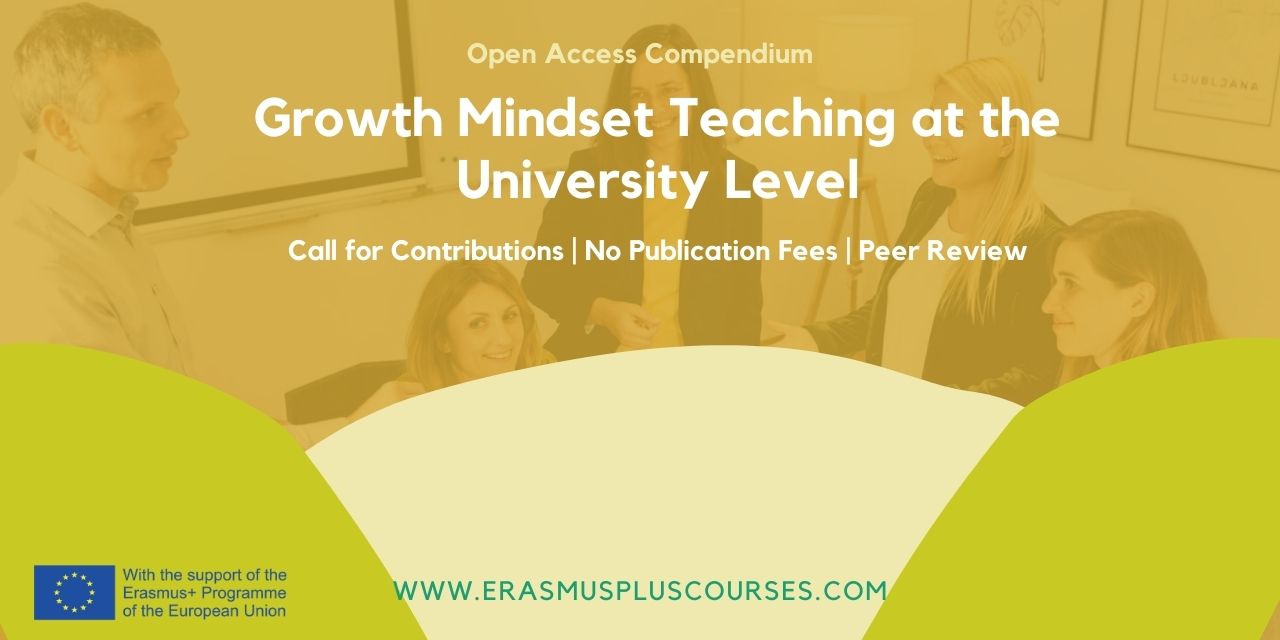|
Open Access Compendium | No Publication fee | Peer Review With the aim of promoting growth mindset pedagogy we will publish an open-access compendium of growth mindset teaching at the university level. With this Call we invite all the university teaching staff to send us their best practice examples. A lot of university teachers are doing something that fosters students’ growth mindset. We kindly invite you to share such an example. To appreciate your effort, your example will then be published in the open-access compendium. Your participation and the publication will be completely free of charge. We hope that a lot of people will contribute to the compendium so that everyone who is interested in the topic of growth mindset teaching has access to an extensive and easily available collection of best-practice examples. All examples submitted to the GrowthMinds project are subject to peer review. This way, manuscripts receive expert feedback, allowing authors to improve their work. Deadline for submitting your case: 31 August 2021. We are available for any questions on the email [email protected]. Growth Mindset Open Access Compendium will be published thanks to the Erasmus+ KA2 project Growthminds (KA2-HE-16/20) and thanks to the committed international team from University of Primorska, University of Klagenfurt, STEP Institute, Balıkesir University, and University of Medicine and Pharmacy of Târgu Mureş. The developed materials will be disseminated for free in five languages, while the activities will directly include university educators and university students as the main target groups. More about Growth Mindset In 1988 Dr. Carol Dweck sparked interest in researching mindsets by showing that those who believe their abilities are malleable (i.e. have a “growth mindset”) are more likely to embrace challenges and persist despite failure than those who view their abilities as non-changeable (i.e. “fixed mindset”). Growth mindset (GM) students seek out better feedback, persist for longer, cope better with transitions, and develop better self-regulation. GM reduces stress in students, promotes wellbeing and emotional functioning, improves self-esteem, learning orientation, reduces helplessness, and is linked with grit and pro-social behaviors. Research supports the idea that educator mindsets may influence the way they respond to students, which in turn has an impact on the students’ outcomes.
|
primeraWe empower teachers so they can do their job best. Categories
All
LINKSPrimera's practical handbook for writing high quality Erasmus+ mobility projects.
Pan-European Conference on Digital Education Facebook Community. Primera's FB page. Work with us on Erasmus+ KA2 projects: STEP Institute. |
||||||||
Erasmus+ by Primera for teachersErasmus+ courses by Primera are dedicated to teachers who value evidence-based and practice-driven training in highly interactive international atmosphere.
OID Ljubljana: E10091479 OID Vienna: E10298896 E: [email protected] T: +386 1 320 28 43 Privacy Policy |
Navigation |
Stay tuned! |
© 2020 Skupina Primera Ltd. All rights reserved.




 RSS Feed
RSS Feed